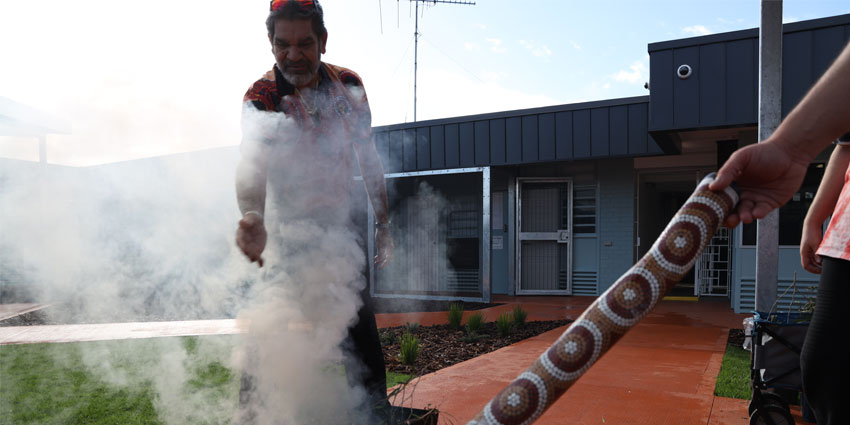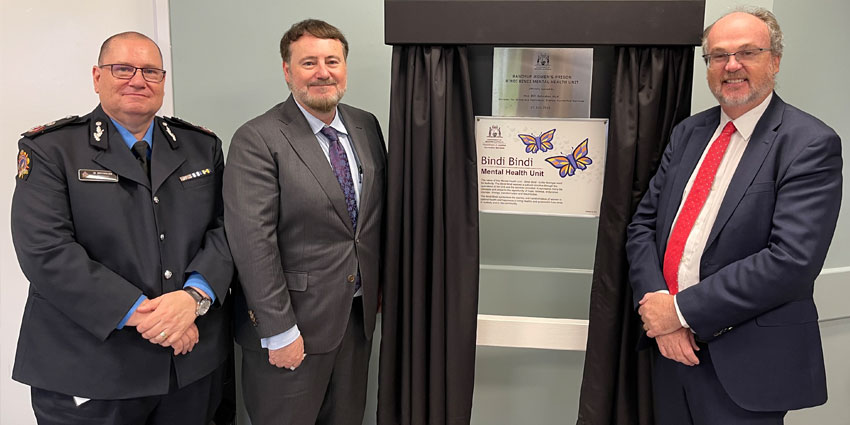
George Hayden, manager of the Noongar Boodjar Language Corporation, performs a smoking ceremony for the opening.
The 29-bed Bindi Bindi unit is named after the Noongar word for butterfly to symbolise the journey of transformation of vulnerable women prisoners needing services to heal, rehabilitate and reintegrate into the community.
It will be the first prison unit in WA dedicated to mental health and is available to women prisoners across the State.
The $2.4 million unit was opened by Corrective Services Minister Bill Johnston today.
"The prevalence of mental illness in our prisons presents a significant challenge and makes Corrective Services one of the biggest mental health providers in the State,” Mr Johnston said.
"Bindi Bindi will help improve the mental health of prisoners in a non-threatening environment, aiding their rehabilitation and making prisons and the community safer places,” he said.
The State Government provided an extra $4.7 million in funding for staff, training and furnishings for the unit.
Department of Justice Director General Dr Adam Tomison said about 25 per cent of the women in WA prisons required mental health treatment.
Dr Tomison said the unit would begin housing eligible women in August, providing an intensive level of support to address their complex needs.
“We anticipate that by intervening early and effectively, the need for inpatient transfers to the State’s external mental health facility for prisoners can be reduced,” he said.
“The Bindi Bindi unit can care for up to 29 women at a time, with 23-sub acute beds and six high-dependency beds.”
Corrective Services Commissioner Mike Reynolds said the unit was an ambitious undertaking and represented considerable progress in the management of mental health interventions in the prison environment.
“The women will receive treatment in a supportive environment that’s designed to prevent further deterioration and, where possible, avoid hospital treatment,” Commissioner Reynolds said.
“It provides these women with recovery-focused treatment and care in a safe, secure and structured environment.”
Department staff working with the women in the unit have undertaken specialist training to support and stabilise the mental health of prisoners, preparing them to move back into the mainstream prison population or return to the community.
Corrective Services Commissioner Mike Reynolds, Department of Justice Director General Dr Adam Tomison and Corrective Services Minister Bill Johnston.



